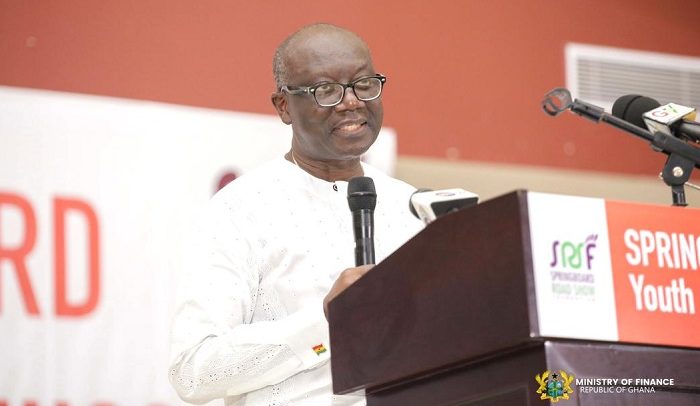Ken Ofori-Atta
Minister of Finance, Ken Ofori-Atta, has said the proposed tax on electronic transactions popularly known as E-Levy, will offer government opportunity to generate revenue to meet public sector workers’ demand for a pay rise.
“I look at teachers and civil servants for example, and I will be the first to admit that the salaries are indecent. Nobody will argue with that. At the same time, it is 60% of all the revenue we collect from 700,000 people that [goes into salary payment], that is also a fact,” he stated.
Speaking at a town hall meeting recently at Wa in the Upper West Region, the Finance Minister said even though it was legitimate for workers to demand an increase in pay, the reality is that there is no money to meet that demand.
According to him, any increase in salary without a corresponding increase in revenue generation will put the biggest squeeze on government finances.
“So yes, there is a legitimate demand for more and there is a legitimate reality that there is no money. So what do we do as a society?” he quizzed and added that the issue now is for more income to be generated domestically, hence the introduction of E-Levy.
He reiterated calls on Ghanaians to support the government’s proposed tax on electronic transactions, noting that the government needs the money to take care of critical expenditure, including the financing of infrastructure and job creation.
Town Hall Meetings
The Wa meeting is the fourth of the town hall meetings by which government officials interact with citizens and explain the need for the acceptance of the E-Levy.
Initially pegged at 1.75%, the E-Levy has been reduced to 1.5%. It was billed to come into effect on February 1, 2022.
Per the arrangement, a sender, and not the receiver, would bear the cost of the 1.5% charge on e-Transactions that are above GH¢100.
Opposition
The stiff opposition mounted by the NDC against the introduction of the E-Levy by the NPP administration has brought about chaos in Parliament.
Hypocrisy
Meanwhile, the NDC, in its 2020 manifesto, promised to introduce some form of electronic transaction fee, which the current New Patriotic Party (NPP) administration is pursuing.
The E-Levy policy proposal, which the NDC did not name at the time, is captured on page 99 on point 8.7 under Financial Inclusion and Electronic Payments (FINTECH) in the party’s manifesto dubbed “People’s Manifesto.”
The NDC had proposed, among other things, that the next NDC government “will introduce a uniform transaction fee policy to guide the electronic payments industry.”
The party also said its next government would “work with merchants to encourage their clients to pay for goods and services electronically,” beside the promise to “promote digital finance to drive financial inclusion, and financial development.”
The manifesto also said the NDC would “migrate and enforce all Person-to-Government (P2G) payments into the electronic payment ecosystem, and this will start with migrating all major revenue-generating ventures of Government into e-Payment platforms such as was envisaged under the e-Ghana Project and will be applicable in all sectors – financial and non-financial.”
U-Turn
The sudden U-turn of the NDC and its rebellion against the E-Levy has been described as hypocritical by its opponents.
Since the Akufo-Addo-led NPP administration, through Finance Minister Ken Ofori-Atta, presented the 2022 Budget Statement on November 17, last year, the NDC, through their MPs, have caused chaos at every step towards the approval of the policy.
Parliament last year approved the entire budget estimates and the accompanying appropriation. Majority Leader, Osei Kyei-Mensah-Bonsu, said this meant that technically the E-Levy has been passed because most of the estimates are tied to revenue which is going to accrue from the levy when passed.
By Ernest Kofi Adu


